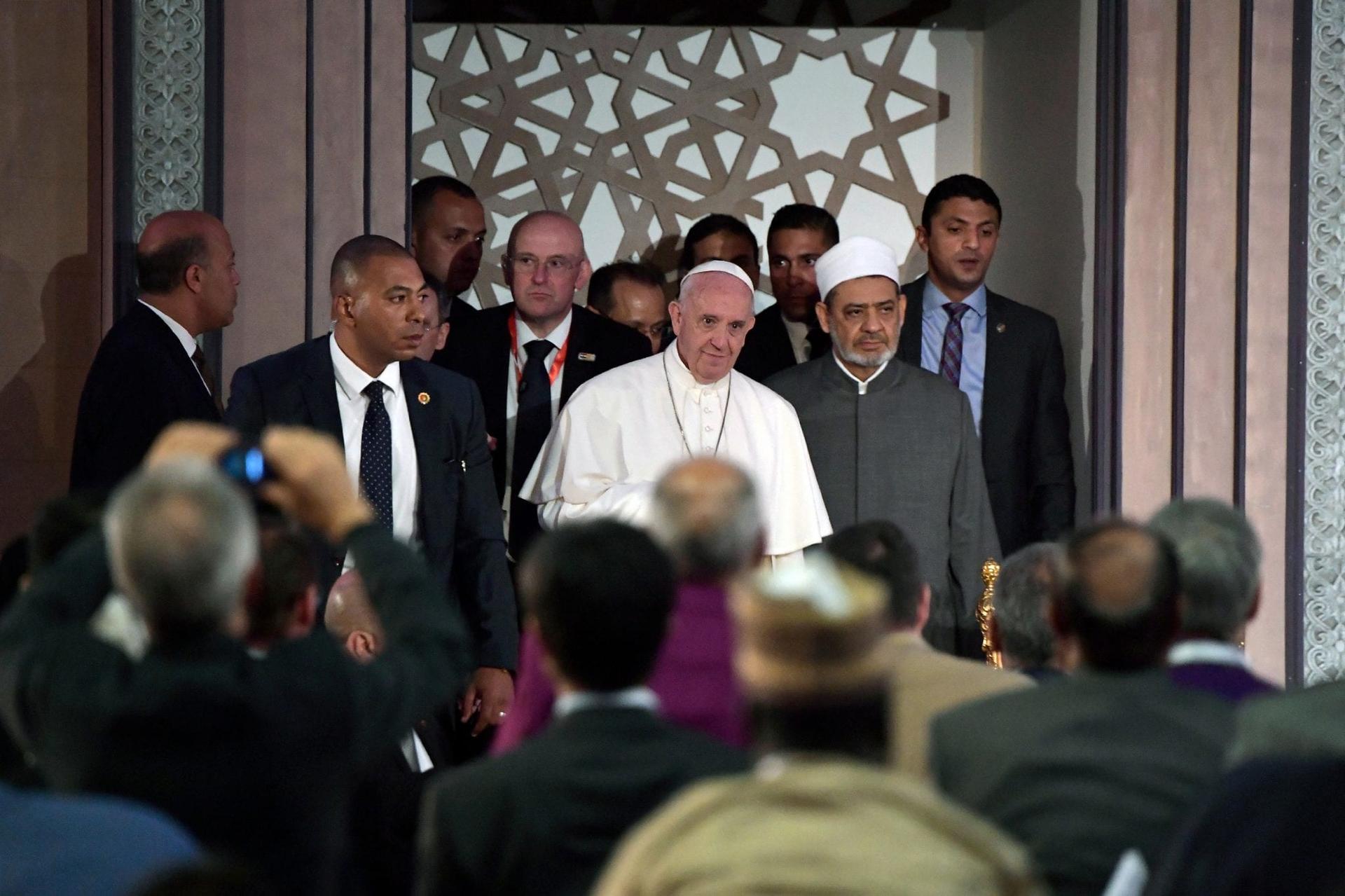CAIRO, Egypt – Heading into his two-day trip to Egypt, it was unclear exactly how direct Pope Francis might be about the threats faced by the local Christian community. The pontiff came to Egypt, after all, to build bridges of friendship with the Muslim establishment, and he also doesn’t want to embarrass his hosts in the Egyptian government.
However, it turns out that Pope Francis decided to be fairly blunt after all.
On Friday afternoon, in an address to political and civil authorities in the world’s sixth most populous Muslim nation, Francis made an unmistakable reference to the gap between rhetoric and reality when it comes to the fate of Egypt’s Christian minority, which represents somewhere between ten and twenty percent of the national population.
“I think in a particular way of all those individuals who in recent years have given their lives to protect your country: young people, members of the armed forces and police, Coptic citizens and all those nameless victims of various forms of terrorist extremism,” the pope said.
“I think also of the murders and the threats that have led to an exodus of Christians from northern Sinai. I express my gratitude to the civil and religious authorities and to all those who have offered welcome and assistance to these persons who have suffered so greatly,” Francis said to the crowd at the Hotel Almasah, which is owned and administered directly by Egypt’s Ministry of Defense.
“I also think of the victims of the attacks on Coptic churches, both last December and more recently in Tanta and Alexandria,” Francis said. “To the members of their families, and to all of Egypt, I offer my heartfelt condolences and my prayers that the Lord will grant speedy healing to the injured.”
He was referring to a bomb attack on Cairo’s main Coptic cathedral in December 2016 that left at least 25 dead, as well as Palm Sunday bombings at two other Coptic churches just weeks ago that killed 47 people.
In less spectacular fashion, Copts in Egypt routinely complain of low-level oppression and harassment, including difficulties in finding positions and opportunities for advancement in employment and in political life. While Christianity has had a foothold in Egypt from the very beginning, and although the Egyptian constitution ostensibly guarantees religious freedom, Christians generally say the reality on the ground is mixed and becoming tenser.
In that context, Pope Francis on Friday sought to deliver the Christian community a shot in the arm, recognizing the Coptic, Greek, Byzantine, Armenian and Protestant Christian churches of Egypt.
“Your presence in this, your country, is not new or accidental, but ancient and an inseparable part of the history of Egypt. You are an integral part of this country, and over the course of the centuries you have developed a sort of unique rapport, a particular symbiosis, which can serve as an example to other nations,” he said, drawing strong applause.
Francis also suggested the country’s Christians have an ecumenical vocation.
“You have shown, and continue to show, that it is possible to live together in mutual respect and fairness, finding in difference a source of richness and never a motive of conflict,” he said.
Later on Friday, Francis is scheduled to visit the Coptic Orthodox cathedral of Cairo to greet Pope Tawadros II, the leader of the Coptic Orthodox church, in another expression of solidarity and concern.












